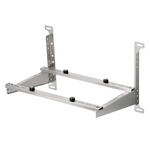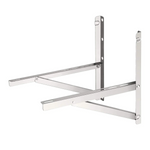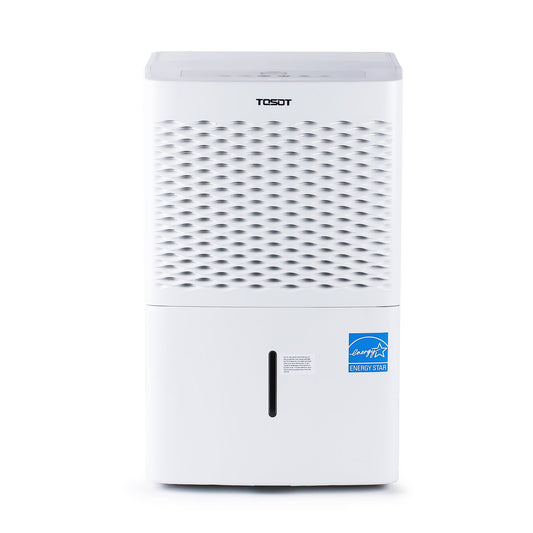Now, more than ever, we all need to find ways to improve our immune system. But not only in these crazy times... Our wellness should always be one of top priorities, because it affects us in all aspects of our lives.
There are many ways in which you can give your immune system a boost. Here you'll find some ideas.
1. Stay connected
Did you know that connecting with others can improve your immune response? According to Harvard Health, “it helps relieve harmful levels of stress, which can adversely affect coronary arteries, gut function, insulin regulation, and the immune system.”

Social distancing doesn’t mean not staying in touch. While you may not be able to go outside, this is the perfect time to reach out to all people in your life. There are many ways to do it through video-chat nowadays, like: Facebook, Whatsapp, Skype, Zoom, Meet, Teams, among other… Or just by regular phone!
2. Give your body more Vitamin C
Vitamin C is vital for a healthy immune system. According to Medical News Today, “studies show that low levels of vitamin C lead to problems with the immune system and other illnesses.”

These are some of the foods with the highest Vitamin C content and % of 90 mg daily value:
- Guava (1 cup, raw): 419%
- Sweet red pepper (1 cup, raw): 211%
- Tomato juice (1 cup, canned): 188.9%
- Orange juice (1 cup): 137.8%
- Sweet green pepper (1 cup, raw): 133%
- Hot green chilli pepper (1 pepper, raw): 121%
- Oranges (1 large fruit): 108.8%
- Strawberries (1 cup, sliced): 108%
- Papaya (1 small fruit): 106.2%
- Pink grapefruit juice (1 cup): 104.3%
- Broccoli (1 cup, raw): 90.2%
- Pineapple chunks (1 cup, raw): 87.7%
- Potato (1 large vegetable): 80.8%
- Brussels sprouts (1 cup, raw): 79.8%
- Kiwi fruit (1 fruit): 71.1%
- Mango (1 cup, raw): 66.7%
- Cantaloupe (1 cup): 63.7%
- Cauliflower (1 cup, raw): 57.3%
- Lemon (1 fruit): 49.4%
- White grapefruit (1/2 medium fruit): 43.3%
Source: Medical News Today
3. Get a pet
Even if you can't believe it, having a pet is great for your health!

For example, these are some benefits of owning a dog:
- Dog owners experience fewer health problems, according to Lifehack.
- Furry friends know when you’re distressed and will do their best to help you out during those hard times. They can help lower your stress levels.
- They can help reduce symptoms of depression, which usually also decrease your immune response.
4. Move around

One of the things that the WHO (World Health Organization) recommends, is to exercise 30 minutes per day. If you can’t go outside, there are plenty of exercise routines that you can do online! And there’s something for everyone. Some examples are:
- Functional training
- Aerobics
- Yoga
- Pilates
- Stretching
- Dance
- You can also go up and down the stairs many times a day!
- And if you don’t have stairs, keeping the house clean is also a great exercise.
Give your immune system a boost!
5. Include more garlic in your diet

Garlic has amazing benefits. According to the University of Rochester Medical Center, “Garlic has been used as an antiseptic, antibacterial, and anti-fungal agent. It may help the body resist or destroy viruses and other microorganisms. It does this by boosting the immune system.” Tip: Crash or slice it before eating. This will increase the content of allicin (immune system booster).
6. Breathe in, breathe out…

You can strengthen your immune system with diaphragmatic breathing. Why? When we are under stress, our body’s immune system can’t work at full capacity.
How to do it? Follow these steps from Healthline:
- Sit in a comfortable position.
- Relax your shoulders.
- Put one hand on your chest and one on your stomach.
- Breathe in through your nose and count to 4. While doing so, your stomach should be expanding outward.
- Purse your lips and exhale slowly counting to 4. Your stomach should contract inward.
- Repeat multiple times. If you want you can play some relaxing instrumental music in the background.
7. Sleep well!

Numerous studies have shown that getting a good night's sleep is vital for your immune response. So, how well are you sleeping?
Mayo Clinic states: "During sleep, your immune system releases proteins called cytokines, some of which help promote sleep. Certain cytokines need to increase when you have an infection or inflammation, or when you're under stress. Sleep deprivation may decrease production of these protective cytokines. In addition, infection-fighting antibodies and cells are reduced during periods when you don't get enough sleep."
How many hours should you sleep?
Sleeping well doesn't mean sleeping tons of hours. Mayo Clinic recommends the following:
- Adults: 7-8 hours
- Teenagers: 9-10 hours
- School kids: May need more than 10 hours
Note that in the case of adults, sleeping more than 10 hours could affect sleep quality in a negative way.
Can mold stop you from sleeping well?
One of the things you can do to get a good night's sleep is to improve your air quality, as sometimes, respiratory allergies or asthma are triggered by allergens in the air. If you live in a humid environment, you're more prone to have mold around your home and its presence could alter your sleep by making it harder to breathe.
The best way to prevent mold from knocking on your door is to maintain healthy indoor relative humidity levels (30%-55%), and a great help for this is the use of a dehumidifier.
Why choose TOSOT?

TOSOT Dehumidifier Review
“Both my son and his wife have airborne allergies; the dehumidifier really does the job to suck in moisture in their apartment. They’re able to breathe much better.” Venerose, 30 Pint Dehumidifier Customer
You may also like:
5 ways to hide away from the flu
3 indoor allergens that love humidity
Want more tips like these?
To stay updated with all of our tips, all you need to do is sign-up to our newsletter:
Use information at your own risk: The information presented is intended for educational purposes only and is not intended to be a substitute for professional advice, diagnosis or treatment. Never disregard professional medical advice. The information and suggestions should be discussed with a professional. You are responsible for independently verifying the information if you intend to rely upon or use it in any way. You use all information at your own risk.






